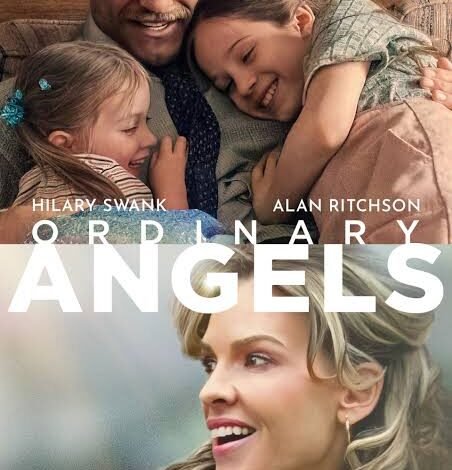Comprehensive Review of Ordinary Angels (2024) From a Family Strengthening, Securing a Friendly and Protective Environment for Children® Perspective, and Rights-Based Parenting® Perspective

Director: Jon Gunn
Executive Producers: Jon Erwin, Andrew Erwin, Kevin Downes, Dave Matthews, Johnathan Dorfman, Sarah Johnson, David Beal
Country: United States
Streaming Platforms: Apple TV, Amazon Prime Video and Netflix.
Introduction
Ordinary Angels, directed by Jon Gunn, tells the powerful, real-life story of Sharon Stevens, a hairdresser in Louisville, Kentucky, who transformed her life by helping a grieving family during the 1994 North American cold wave. The film explores themes of redemption, resilience, and community, culminating in the life-saving efforts to secure a liver transplant for a young girl.
Family Strengthening Perspective
Themes and Insights:
- The Role of Community in Family Resilience:
Sharon’s efforts to support the Schmitt family reflect the critical role of community in strengthening family units. Her determination to rally resources and connect with local businesses shows how external networks can provide essential support during times of crisis. - Healing Through Connection:
Sharon’s involvement with the Schmitts becomes a catalyst for her own growth and healing, emphasizing the importance of shared empathy and solidarity. Her eventual reconciliation with her estranged son highlights the impact of persistence and open-heartedness in mending fractured relationships. - Breaking Cycles of Hopelessness:
By stepping into the Schmitts’ lives, Sharon disrupts their trajectory of despair, showing how consistent, external support can instill hope and foster resilience in struggling families.
Key Takeaways:
- Families should actively engage with their communities to build support networks that can provide both practical assistance and emotional encouragement during challenging times.
- Maintaining open communication and addressing unresolved conflicts within families can lead to meaningful reconciliation and growth.
- Simple acts of kindness and compassion can have far-reaching effects, strengthening bonds and inspiring others to rise above their struggles.
Securing a Friendly and Protective Environment for Children® Perspective
Themes and Insights:
- Creating Safe Emotional Spaces:
Despite her flaws, Sharon creates a protective and nurturing environment for the Schmitt girls, providing emotional stability during a turbulent time. Her bond with them highlights the importance of attentive caregiving for children’s emotional well-being. - Advocacy for Health Rights:
The film underscores the significance of ensuring access to essential healthcare for children. Sharon’s relentless efforts to secure financial and logistical support for Michelle’s liver transplant showcase the life-changing impact of collective advocacy. - The Role of Adults in Supporting Vulnerable Children:
Sharon and Ed demonstrate the powerful role that responsible adults can play in safeguarding children’s futures. Their actions reinforce the necessity of prioritizing children’s needs over personal challenges.
Key Takeaways:
- Adults must prioritize creating emotionally and physically safe spaces for children, especially during times of familial instability.
- Community-wide efforts are essential to address systemic barriers to healthcare and well-being for vulnerable children.
- Empowering caregivers with resources and support can directly benefit children’s safety and development.
Rights-Based Parenting® Perspective
Themes and Insights:
- Respecting Children’s Right to Health and Well-being:
The urgency surrounding Michelle’s medical needs highlights the critical importance of upholding every child’s right to access healthcare. The film showcases how collective action can help actualize these rights, even in the face of systemic challenges. - Empowering Children Through Compassionate Care:
Sharon’s connection with the Schmitt girls shows how respect for their emotional needs and individuality helps foster a sense of security and belonging. - Advocating for Children’s Autonomy and Voice:
While Michelle’s health decisions are largely out of her control, the story emphasizes the importance of including children in conversations about their needs, as seen in Sharon’s efforts to create joyful moments for the girls.
Key Lessons from a Rights-Based Perspective:
- Families and caregivers must actively advocate for children’s rights to health, safety, and emotional well-being.
- Empowering children through respectful, compassionate care can build their confidence and sense of agency.
- Systems and policies should prioritize children’s needs, with a focus on removing barriers to essential services like healthcare and education.
Conclusion
Ordinary Angels is a moving exploration of redemption, resilience, and the power of community. The film illustrates the profound impact of empathy and support in fostering resilience. It highlights the critical importance of safe and nurturing environments for children, particularly in moments of crisis, while championing children’s rights to health and emotional security. The film calls on viewers to recognize the transformative power of collective action and compassionate care, offering a profound reminder that even small acts of kindness can change lives.





